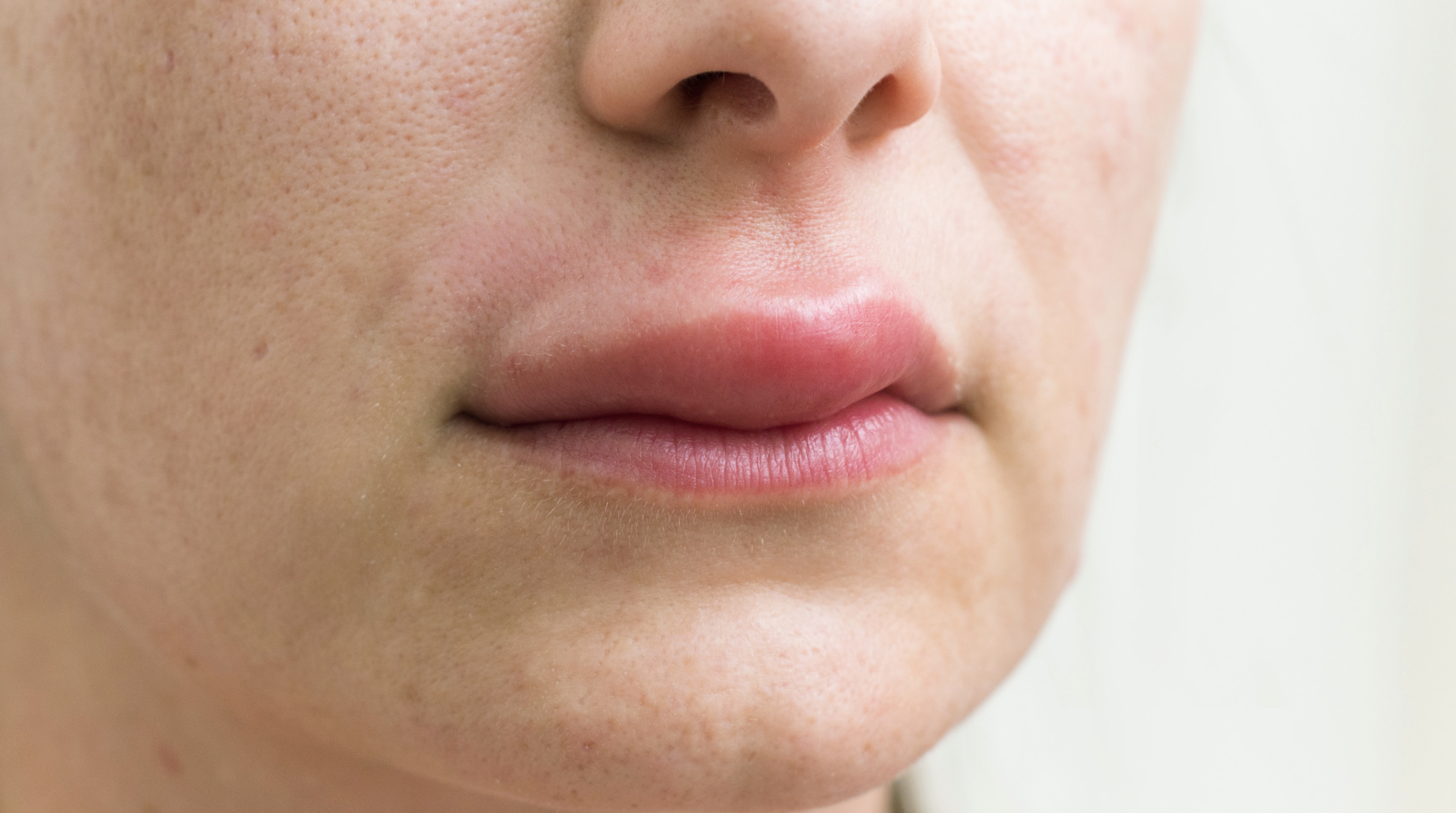Subtle changes in the body might seem minor, but they can be signs that your body is not functioning properly. Recognizing those signs early can help detect health issues before they become severe. In this blog, we will discuss all the potential warning signs of an unhealthy body.
15 Signs of an Unhealthy Body You Should Pay Attention To
Here are the indicators of poor health:
1. Unexplained Weight Loss
-
A persistent loss of over 5% of body weight over 6 to 12 months can be a sign of an unhealthy body, indicating the risk of health issues.
-
Those health problems can be diabetes, liver disease, hyperthyroidism (over-active thyroid), depression, anxiety, malabsorption disorders, gastrointestinal disorders, or cancer.
2. High Fever
-
A high fever that is above 103 degrees Fahrenheit means your body is fighting off infections or illnesses like urinary tract infection, endocarditis (inflammation of the lining of heart valves and chambers, meningitis, and pneumonia.
-
A persistent low-grade fever that lasts over 3 days could signify certain infections like sinus infection, tuberculosis, or cancers like lymphoma or leukaemia.
3. Shortness of Breath
-
Shortness of breath very commonly indicates an underlying heart and lung problem, which is triggered by obesity, high altitudes, or extreme temperatures.
-
Heart issues may include heart failure and heart attack, and lung problems may be Chronic Obstructive Pulmonary Disease (COPD), asthma, and pneumonia.
4. Low Appetite
-
If you feel full on a small portion of food or upon eating much less than what is normal, it can indicate underlying problems.
-
Possible causes for low appetite could be peptic ulcers, gastroesophageal reflux disease (GERD), or more severe issues, like pancreatic cancer.
5. Poor Sleep
-
Poor sleep can be one of the emotional symptoms of poor health, pointing towards a stressed state of mind and body, which leads to high cortisol levels, impacting the body's repair process.
-
This makes the body prone to several illnesses, like heart issues, metabolic problems, mental health issues, and cognitive impairment, as the immune system is not functioning optimally under such circumstances.
6. Chronic Fatigue
-
Chronic fatigue that doesn’t resolve even after a full night's sleep could indicate a more serious medical problem, like impaired thyroid functioning, adrenal fatigue, toxin overload due to poor diet, lifestyle choices, or other environmental exposures.
-
Stress or pressure on the nervous system could also cause the body's repair mechanisms to work overtime to fight off infection and other illnesses. This leads to chronic fatigue.
7. Dark Yellow Urine
-
If it is dark yellow colored urine despite drinking enough water, it indicates kidney disorders, showing the body's waste is not being processed properly.
-
Moreover, it can be a sign of dehydration, where the body retains fluid, leading to less fluid in the urine. This makes urine more concentrated and dark colored.
8. Anxiety, Confusion, or Change in Personality
-
A confused thought process, disorientation, difficulty in concentration, or sudden personality changes, like becoming more aggressive, could be the result of numerous health issues.
-
Those problems include anemia, low blood sugar, infection, dehydration, and mental health disorders.
9. Inconsistent Bowel Movement
-
Changes in bowel movement, like persistent diarrhea and constipation, bloody stools, and changes in the color and shape of stools, could also signify different health conditions.
-
Those health conditions can be irritable bowel syndrome (IBS), Crohn's disease, thyroid issues (e.g., Hyperthyroidism and hypothyroidism), celiac disease, and even colon cancer.
10. Prone to Cold & Flu
-
If you catch colds more frequently, then your immune system may be weak, which is unable to fight off the viruses associated with cold and flu.
-
The conditions, like diabetes, asthma, kidney problems, heart disease, age, and medications (e.g., immunosuppressants), can weaken the immune system.
11. Intense Headaches
-
Intense headaches, accompanied by other symptoms like fever, stiff neck, numbness, and weakness, can indicate several underlying medical issues.
-
The potential reasons can be thunderclap headaches, infections, head injury, stroke, and meningitis, which need immediate medical attention.
12. Skin Problems
-
Persistent acne, dry skin, rashes, skin discoloration, and changes in skin texture can point to several underlying health issues.
-
Those conditions may include hormonal imbalances, allergies, infections, nutritional deficiencies, and more severe issues, such as thyroid issues, diabetes, and even cancer.
13. Brittle Hair & Nails
-
Brittle nails and weakening and thinning of hair may signal nutritional deficiencies that involve deficiencies of iron, biotin, protein, calcium, zinc, and other vital nutrients.
-
Moreover, other contributing factors may include several underlying health issues, like hormonal imbalances, thyroid problems (e.g., hypothyroidism), autoimmune conditions (e.g., lupus and psoriasis), and poor lifestyle.
14. Feeling Excessively Gassy
-
Excessive gas that occurs frequently can underlying digestive disorder such as celiac disease, inflammatory bowel disease (IBD), irritable bowel syndrome (IBS), and lactose intolerance.
-
However, if it occurs some other symptoms like bloating, abdominal pain, diarrhea, constipation, bloody stools, and weight loss, seek medical attention immediately.
15. Sudden, Severe, and Recurring Abdominal Pain
-
Sudden, extreme, and recurring abdominal pain can be a warning sign of health conditions like appendicitis, bleeding ulcer, gallbladder inflammation, kidney stones, pancreatitis, and more, which need medical care.
-
In addition, it can also point to ectopic pregnancy (in women of reproductive age), where a fertilized egg attaches and grows outside of the uterus, especially in the fallopian tube.
When To See a Doctor?
-
If you observe any of these symptoms regularly, do not ignore them.
-
The best advice is to consult the healthcare provider for proper diagnosis and effective treatment.
-
The doctors can help provide suitable treatments based on the conditions diagnosed.
-
Remember that early detection and medical intervention are crucial to prevent more severe health problems.
What Can You Do To Avoid Being Unhealthy?
You can consider some dietary and lifestyle changes to manage unhealthiness and improve overall health:
1. Improve Daily Diet:
-
Eat a well-balanced diet: Consume a diet rich in lean proteins, healthy fats, whole grains, fruits, and vegetables.
-
Limit processed foods, unhealthy fats, and sugary drinks: Avoid or limit packaged snacks, greasy and fried foods, and beverages highly rich in added sugars.
-
Stay hydrated: Drink a lot of water throughout the day for proper bodily functions.
2. Increase Physical Activity:
-
Practice moderate-intensity exercise: Exercise for at least 30 minutes on most days of the week.
-
Engage in activities you enjoy: Those activities include dancing, swimming, running, walking, or playing sports.
-
Avoid long hours sitting: Take breaks to stretch or walk around the room.
3. Get Adequate Sleep:
-
Focus on quality sleep: Get 7-9 hours of good sleep every night, which is essential for physical and mental health.
-
Set up a relaxing bedtime routine: This can be done by dimming the lights, listening to calming music, taking a warm bath, or reading a book to relax before bed.
-
Avoid alcohol and caffeine before bed: Research reports that caffeine and alcohol before going to sleep can interfere with the duration and quality of sleep.
4. Manage Stress:
-
Practice relaxation techniques: This includes meditation, deep breathing exercises, or yoga to calm the mind and reduce stress. A study shows that early life stress can make adults more prone to IBS later in life.
-
Seek support from family members, friends, or a therapist: Share your concerns and feelings to stay motivated and cope with stress.
-
Engage in activities you enjoy: Read a book, listen to music, or dance to feel more relaxed and manage stress.
Additional Tips: Set realistic goals and be consistent to build up the habits. This will help you get back to your healthy routine.
Critical Factors that Affect Health
Understanding the factors that impact your health can help prevent the risk of developing medical conditions:
-
Lifestyle choices: Poor diet, lack of exercise, alcohol consumption, stress, smoking, and inadequate sleep can significantly affect health.
-
Biological Factors: Physiological processes, genetics, and overall status of physical health can also contribute.
-
Environmental Factors: Lack of crucial services like food and water, exposure to irritants, and poor living areas can also play a role.
-
Access to Healthcare: The convenience, availability, & affordability of healthcare services impact an individual's health outcomes.
Final Thoughts
These potential signs of an unhealthy body shouldn’t be ignored, as they can eventually lead to significant medical issues. Hence, it's crucial to pay attention to any changes or symptoms and seek medical attention immediately. Incorporating dietary and lifestyle changes, like regular exercise, a balanced diet, and stress management, can reduce the risk of several health issues, ultimately leading to a healthier and happier life.
Frequently Asked Questions
What are the signs of bad physical health?
Those include muscle or joint pain, back pain, tiredness, headaches, chest pain, feeling faint, heart palpitations, and stomach issues.
What are the risk factors for obesity?
Key risk factors might include an unhealthy diet, stress, lack of physical activity, genetics, inadequate sleep, and certain medicines.
What are the facial signs of heart problems?
Those include premature hair greying, arcus senilis (a white ring around the cornea), earlobe crease, and xanthelasma (yellow deposits around the eyelids).
What are the 5 warning signs of stress?
Those signs include physical symptoms (e.g., muscle tension and headaches), behavioral changes (e.g., changes in appetite or sleep), cognitive difficulties (e.g., trouble concentrating), emotional changes (e.g., anxiety or irritability), and social withdrawal (like spending less time with family & friends).
What pains should you not ignore?
Never avoid sudden and severe chest pain, severe headaches, abdominal pain with rectal bleeding or fever, and leg pain with swelling. These pains can indicate issues like blood clots, a heart attack, or other medical issues that require immediate medical intervention.
-User-1754377709.png)
Reviewed by







